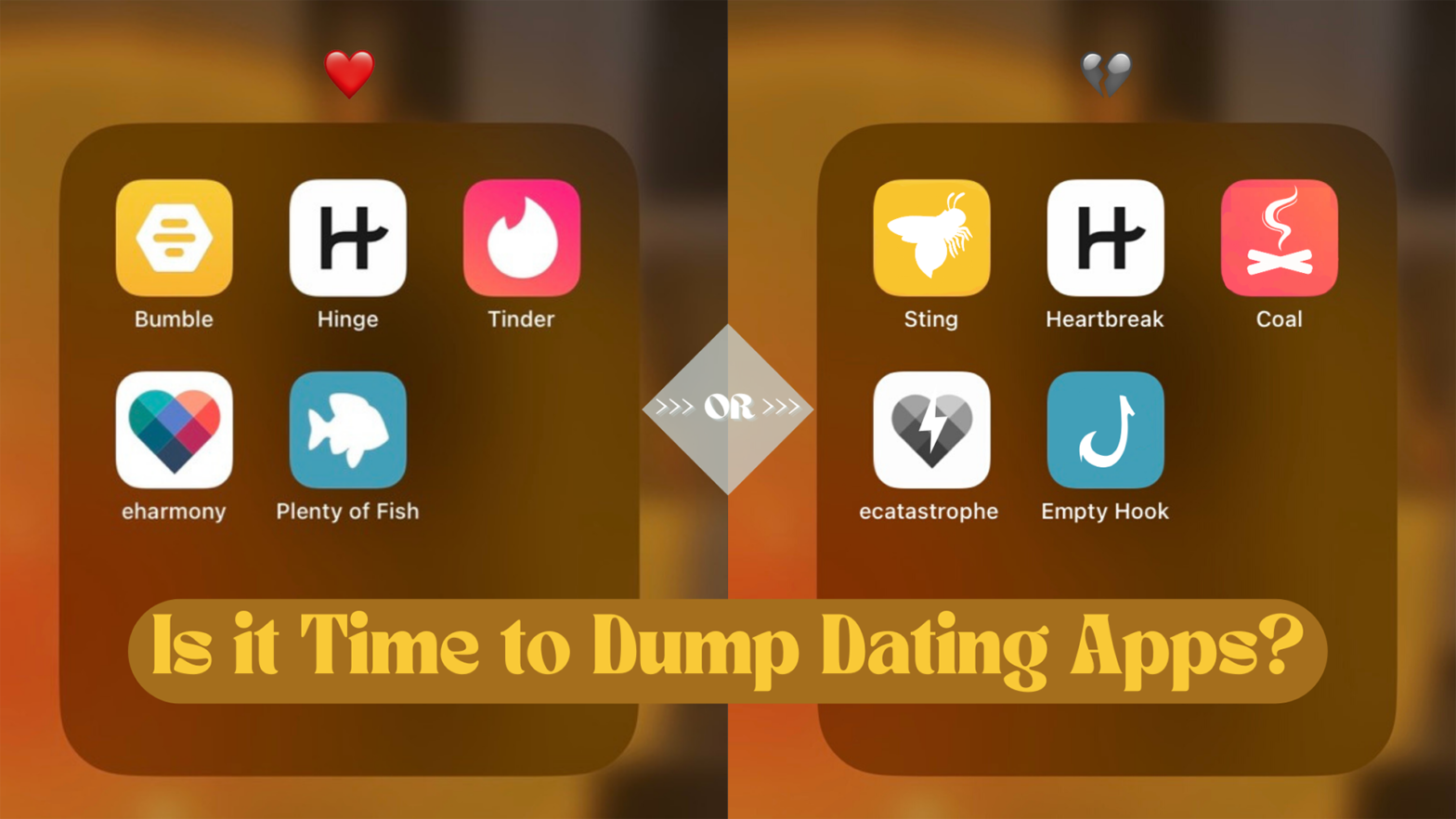Hinge advertises itself as the dating app designed to be deleted. The tagline implies a happy ending. It guarantees that users will find the one. My history with Hinge, however, is less fairytale and more dystopian. Call me a cynic, but I don’t think these corporate algorithms were created to help us find romance.
There’s a lot I hate about dating apps; the awkward small talk, the unsolicited sexts, and the choice paralysis that comes with narrowing down potential matches. What troubles me most is the way they commodify sex and relationships and profit off of people’s insecurities. Dating apps felt like work, so I took some time off to realize what I want and what I’m comfortable with. Now, I’m finding myself evangelizing the benefits of a dating app detox.
A product that is “designed to be deleted” isn’t profitable. Apps don’t make money based on matches made, they need users to buy more swipes. Most apps are free to download but include paid subscription options that promise users perks.
Hinge, for example, offers two additional tiers within their service for a monthly subscription fee. Hinge+ starts at $14.99 a month (for 6 months) and allows users to send unlimited likes, see everyone who likes them, sort likes easily, and fine-tune their preferences. HingeX, priced at $49.99, has everything Hinge+ has to offer, plus priority lines and more profile visibility. Most of the most popular dating apps (Tinder, Hinge, Match.com, OKCupid, and many more) are all owned by the same company: Match Group. So if you run out of likes on one app and switch to another, Match Group probably still pockets the money.
Interactions on these apps also feel transactional. Dating apps have a reputation for being hookup culture hubs, streamlining the one-night stand. Thanks to modern technology, we can initiate a sexual encounter almost as quickly and easily as we can order a sandwich. We live in a convenience economy with just about everything at our fingertips. It’s as easy to end up scrolling or swiping endlessly on dating apps just as it is on any other kind of app. They can be addictive. They operate more or less like a slot machine. Within the barrage of embarrassing, uncomfortable, even dehumanizing interactions, we occasionally hit the jackpot and get that validation we’re looking for. Dating apps reinforce this culture by encouraging us to turn ourselves into products and when we use the apps we tend to forget that products are meant to be used, then discarded.
It’s not surprising that social inequities are as pervasive in the digital dating world as they are anywhere else. A Pew Research Center study from February of 2023 found that 56% of young women experience unwanted behaviors (such as offensive, threatening, or sexually explicit messages). It also reported that women tend to feel overwhelmed by the amount of matches and messages they receive, while men tend to feel insecure about not receiving enough. Creators of apps are acutely aware of how their users’ experiences may vary based on factors like age, race, gender, and sexual orientation. Tinder has even tried to use this kind of information to implement differential pricing for Tinder Plus. Differential pricing is the practice of charging users different amounts for the same service. I’m troubled by the potential for this technology to be used in discriminatory ways. Studies have already found that Tinder tended to charge older users more for the same service. In 2019, Tinder settled a suit for $11.5 million dollars. The suit had alleged that Tinder had been charging more users over the age of 30 more than double for Tinder premium.
In spite of their problems, dating apps remain popular among young adults; with 53% of people under 30 reporting having ever used them. I was surprised to discover that, when it comes to satisfaction with dating apps, it’s a fairly even split. The same study found that 53% of individuals found their experiences with dating apps to be positive while 46% had a more negative experience. I think the prevalence of dating apps makes people feel pressured to use them, regardless of the quality of their experiences.
I’m not saying I’ll never use dating apps again. However, it’s important to know what to expect when logging on, what your deal breakers are, and when it’s time to delete. One of the most important things to remember about dating apps is that they are a business. Corporations won’t look out for you while you’re looking for love. You have to look out for yourself.







